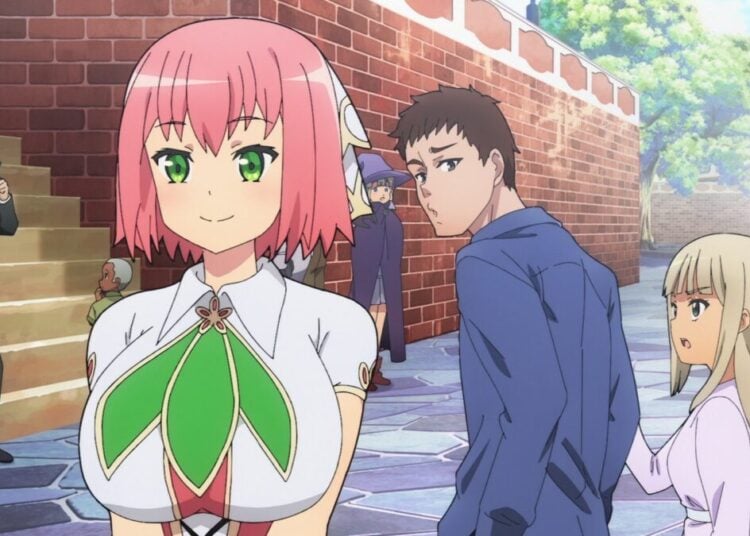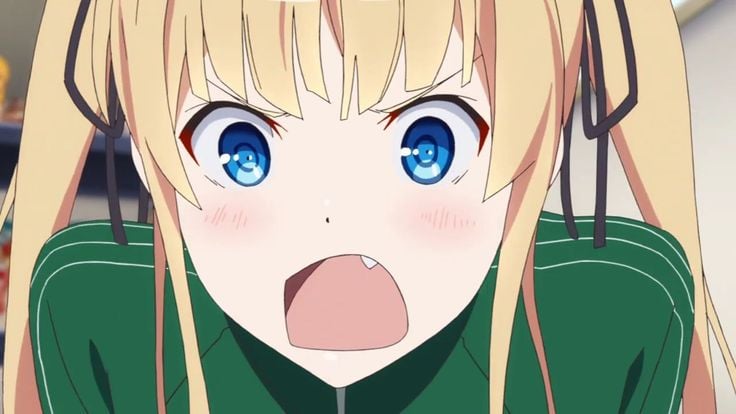The problem of how to pay for retirement for aging populations is plaguing
many nations today, and Japan is no exception. In order to make retirement
savings stretch further, some Japanese have come up with a solution: “long
stay,” a new term which refers to retiring for many years outside of Japan.
More and more, Japanese couples are choosing to spend their twilight years
in countries like New Zealand, Canada and Malaysia, where the cost of
living is low yet access to good hospitals is available. The Philippines
has been encouraging Japanese to come and form expat communities there,
too, building modern hospitals with Japanese-speaking staff. My wife and I
really fell in love with Spain when we went there a few years ago, and are
planning on spending our “silver years” there when the time comes.
We’ve got a new part-time girl at J-List, helping out with our rush of
calendar orders. I hadn’t met her yet, so I went to her today to introduce
myself — and gave her quite a shock, as she wasn’t expecting an American
to suddenly appear and start talking to her in Japanese. Although gaijin
are a tiny portion of Japan — the official number of registered foreigners
is around 1% of Japan’s population of 120 million — the number of
foreigners who master Japanese is even lower, especially outside of cities
like Tokyo. The Japanese do like foreigners who speak Japanese, and there’s
quite a long list of famous gaijin “talents” (a catch-all term meaning any
kind of television personality) who appear on news and variety shows to
give their opinions in Japanese (most gaijin hate these guys because they
speak better than us). The Japanese are fascinated with “gaijin” Japanese
accents, and radio announcers regularly read scripts in Japanese with
hammed-up “American” accents because it sounds cute to listeners. Pepsi did
a series of commercials featuring a bald American who yelled at the screen
in heavily-accented Japanese about how good Pepsi was.
One of the biggest changes to come to Japan in the past decade or so is the
birth of actual competition. In the “old Japan” of the bubble years,
Japanese businesses engaged in “cooperative competition” with each other,
basically offering exactly the same service at the same price as their
competitors. In those days, getting your hair cut was an extravagant,
two-hour long affair, which included a cut, massage, aloe facial treatment,
and a complete shave of your face, neck and (I am not kidding) ear lobes.
At around $35, it wasn’t cheap, but it sure felt good. No matter where you
went, though, Japanese barbers gave pretty much the same excellent service
at the same price, with very little variation in what they would offer.
Banks were another area of cooperative competition. They always provided
pretty much the same services, and no bank did anything the others wouldn’t
be willing to do — in short, competing by trying to act as much like their
competitors as possible. Now, however, things have changed. There is a lot
more choice when it comes to getting a haircut, with discount hair stylists
and various variations in-between. I now get my hair cut for $10, and
although it’s not quite as satisfying as the old $35 deluxe treatment, I
can take the money I save and go to a sento (public bath) and feel almost
as rejuvenated. Banks have also seen big changes, with the advent of
Internet-based banks, foreign banks that offer accounts in dollars or
euros, and so on.
J-List has tons of 2005 calendars available right now, both in stock as
well as preorder calendars that haven’t started to come in yet. Japanese
calendars are really special, with large poster-sized pages and beautiful
glossy printing. J-List goes out of our way to make a huge selection of
these calendars available to everyone, offering anime, JPOP/JROCK, swimsuit
idol and other calendars for order — including esoteric calendars which
might not appeal to everyone, but which might be just what you’re looking
for this year. We humbly suggest that these Japanese import calendars make
great gifts this Christmas. Get your calendar order in quickly!
Remember that J-List sells our world-famous Japanese T-shirts and hoodies,
with original designs and messages like “I’m looking for a Japanese
Girlfriend” and Domo-kun’s face. Our shirts are printed in the USA on 100%
cotton 6.1 lb T-shirts that are of very high quality, and the shirts are
printed with the highest possible quality printing for extra-long life,
even when run regularly through clothes dryers. Also, we make sure to offer
a wide selection of sizes, from small (and even XS) all the way up to XXL
and XXXL, depending on items and colors. Buy 3 of our T-shirts or hoodies
and get 15% off!















